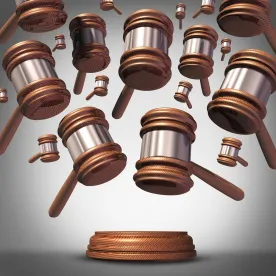The Supreme Court of the United States has approved a series of rules changes that will alter several key aspects of federal procedure when they go into effect in December 2018. Litigators and litigants need to be up to date on these changes to the rules of civil and appellate procedure. We’re taking a look at a few of the significant changes.
Federal Rules of Civil Procedure
The key change to the Federal Rules of Civil Procedure alters the rules governing class action settlements. These changes are intended to modernize class settlement practice and address ongoing issues with judicial oversight of class settlements. They include at least four significant changes to class action practice.
1. The new Rule 23 calls for a federal judge to apply added considerations when reviewing a class settlement. Currently, the rule governing class settlements requires the court to ensure a settlement is “fair, reasonable, and adequate.” It goes no further in articulating the standards for evaluating what is a fair, reasonable or adequate settlement. The amendment will require federal courts to consider a series of new factors in making this determination, including:
(1) “the adequacy of class counsel and class representatives
(2) whether the proposed settlement was negotiated at arms’ length
(3) the adequacy of the relief provided (considering the costs, risks, and delay of trial and/or appeal; the effectiveness of the proposed method of distributing relief, the terms of any proposed award of attorneys’ fees, and any agreement required to be identified under Rule 23(e)(3))
(4) whether class members are treated equitably relative to each other”
Some courts have already applied these or similar factors, but the amendment codifies the standards all federal courts must apply going forward.
2. The amendments update the rules on providing class notice to potential class members by allowing notice through email or other electronic means. The new rule will allow notice of class certification through “electronic means, or other appropriate means.” This language allows for notice by email, text, and perhaps even social media postings. This expansion of the acceptable forms of notice is intended to expedite notice and provide a modernized, efficient means of ensuring that potential class members receive notice of certification of a class. The amendment should streamline and simplify the current process, which generally provides notice through first-class mail or publication. District Courts will ultimately retain discretion to decide what type of notice is appropriate in any particular instance.
3. The new rule imposes additional obligations on those seeking to object to a class settlement. The amendment requires objectors to state the objection “with specificity,” including by identifying whether the objection applies to the entire class, a specific subset of the class, or only to the objector. The objector must also obtain court approval to receive payment in connection with the objection. The amendment is intended to curb abusive practices in settlement objections, as is made clear in its comments: “[S]ome objectors may be seeking only personal gain, and using objections to obtain benefits for themselves rather than assisting in the settlement-review process. At least in some instances, it seems that objectors – or their counsel – have sought to obtain consideration for withdrawing their objections or dismissing appeals from judgments approving class settlements.”
4. An amendment to Rule 23(f) clarifies that a party may not immediately appeal a preliminary approval of a class or the giving of notice to the class. The possibility of interlocutory appeal is left open only for the actual denial or grant of class certification.
In addition to the amendments governing class actions, the Supreme Court amended the Federal Rules of Civil Procedure to: (1) mandate the use of e-filing in all cases where litigants are represented by counsel (which is already a practical reality in most jurisdictions); and (2) prohibit the enforcement of a judgment for 30 days, a change intended to allow for the filing of post-judgment motions prior to any enforcement of the judgment.
Federal Rules of Appellate Procedure
The Supreme Court also approved a relatively controversial rule allowing federal appellate courts to strike an amicus brief if its filing would require a judge to recuse. The amendment retains the current language allowing amicus briefs by private entities if the court grants leave or the parties consent. But the rule adds new language allowing the court to strike a brief submitted by an attorney or person whose presence would require a recusal. The purpose of the rule is to prevent tactical use of amicus briefs in order to target a potentially unfavorable judge.
The amendments to the rules also extends the time for filing reply briefs from 14 to 21 days.
Finally, the new appellate rules also will mandate electronic filing for all represented parties in appeals. With this change electronic filing is now mandatory for all represented parties in every level of federal practice.




 />i
/>i

